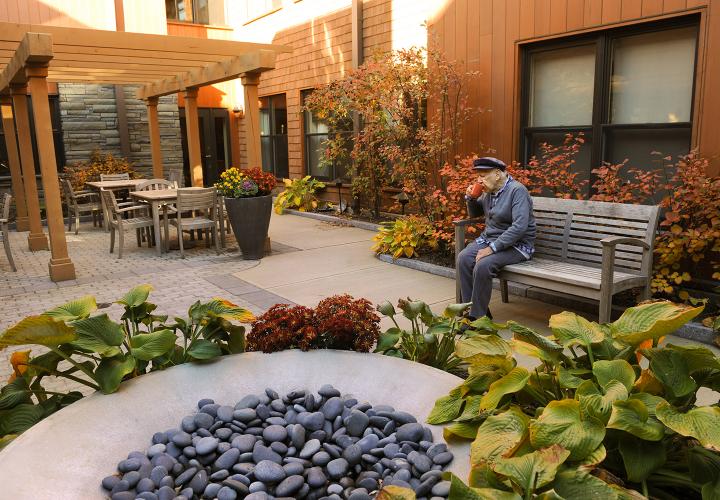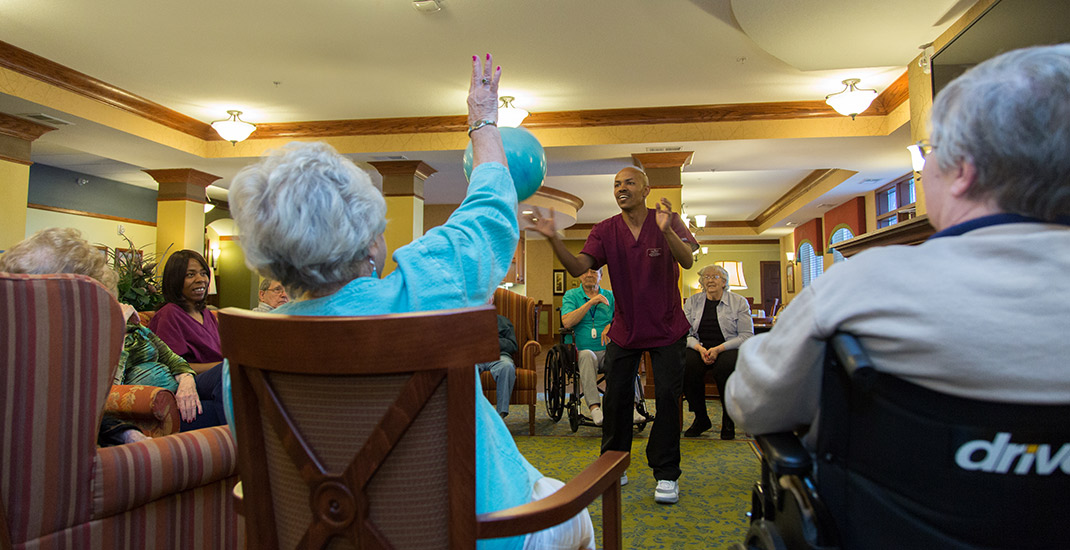Premier Charlotte Memory Care: Specialized Senior Care Solutions
Premier Charlotte Memory Care: Specialized Senior Care Solutions
Blog Article
What to Anticipate in Memory Care: An In-depth Guide to In-Home Provider
Navigating the landscape of memory look after an enjoyed one can be a complex and mentally billed experience. As families pertain to terms with the challenges of caring for a person with memory loss, the world of in-home services supplies a lifeline of support and specialized treatment. Comprehending what to expect in memory care is crucial for making sure the health of both the private with memory disability and their caregivers. From tailored everyday tasks to safety methods and caretaker sources, this guide aims to clarify the comprehensive spectrum of services readily available to those beginning on the journey of in-home memory care.
Daily Activities and Routines
Engaging in structured daily activities and routines is an essential component of providing quality look after individuals in memory care centers. These tasks are carefully created to cater to the details requirements of homeowners with cognitive impairments, such as Alzheimer's disease or dementia. Daily regimens play an essential duty in keeping a sense of knowledge, security, and purpose for people in memory care.

In addition, everyday routines aid individuals in memory treatment facilities to feel even more focused and much less nervous. Uniformity in activities and timetables can reduce confusion and anxiety, offering a sense of security and convenience. Caregivers and personnel play a crucial function in helping with these activities, making certain that each resident gets personalized and caring care customized to their special preferences and capabilities.
Specialized Treatment Provider
Within memory treatment facilities, specialized treatment solutions are important to resolve the distinct needs and difficulties encountered by people with cognitive disabilities such as Alzheimer's condition or dementia. These solutions are made to offer tailored assistance that satisfies the particular requirements of homeowners taking care of amnesia. Specialized treatment services in memory treatment centers usually consist of customized care plans, support with tasks of everyday living, medicine monitoring, and behavior modifications focused on improving quality of life and reducing distress.
Additionally, memory care centers normally provide organized programs and tasks particularly made to boost cognitive function and promote social involvement amongst homeowners. These activities may include memory-enhancing exercises, sensory stimulation therapies, and reminiscence therapy sessions. Furthermore, specialized treatment services frequently involve regular surveillance of citizens' wellness and wellness by skilled personnel who are geared up to handle the special obstacles related to cognitive decrease.
Precaution and Setting
Carrying out strict safety measures and producing a safe environment are paramount concerns see this in memory treatment facilities to ensure the wellness and protection of locals with cognitive problems. Security in memory care starts with protected building layout, including locked doors and monitored entrances to stop homeowners from straying outside without supervision. By prioritizing safety measures and keeping a safe and secure atmosphere, memory care centers objective to give a safety and calming setup for people with cognitive disabilities.
Communication and Interaction Techniques
With an emphasis on promoting purposeful communications and boosting lifestyle, reliable interaction methods play a vital duty in sustaining people in memory treatment centers. Interaction in memory care includes understanding the one-of-a-kind demands of residents that might have cognitive disabilities like dementia. Straightforward language, clear guidelines, and non-verbal signs such as motions and faces are crucial devices for reliable interaction. Caretakers should come close to residents with persistence, regard, and compassion, developing a supportive atmosphere where people really feel understood and valued.
Involvement methods are likewise crucial in memory care, helping residents stay energetic, promoted, and linked to their surroundings. Activities like music treatment, art courses, memory sessions, and sensory excitement can trigger memories, boost state of mind, and promote socializing. Tailoring activities per individual's capabilities and interests is vital to promoting involvement and a sense of achievement. In addition, integrating familiar objects, photographs, and music from the individual's past can provide convenience and promote favorable memories. By prioritizing customized communication and interaction strategies, memory care facilities can improve the overall well-being and top quality of life for their homeowners.
Caretaker Support and Resources
Given the essential function caregivers play in applying efficient interaction and involvement approaches for citizens in memory care centers, providing adequate assistance and sources is necessary to make certain the health of both the caretakers and the individuals under their care. Caregivers in memory care setups typically face unique obstacles that can influence their physical and psychological wellness. To address these difficulties, various support systems and resources are offered to aid caregivers in giving the very best feasible care.
One crucial kind of assistance is caretaker education and training programs. These programs outfit caregivers with the essential skills and expertise to successfully manage the symptoms and behaviors connected with memory loss. In addition, support system provide caretakers the chance to get in touch with others that are experiencing similar difficulties, giving a sense of neighborhood and understanding.

Final Thought

Engaging in structured everyday tasks and regimens is a fundamental component of supplying quality treatment for people in memory treatment facilities.Within memory treatment centers, specialized treatment solutions are essential to resolve the unique needs and obstacles dealt with by individuals with cognitive disabilities such as Alzheimer's illness or dementia. Specialized treatment solutions in memory care centers frequently consist of personalized treatment strategies, assistance with activities of day-to-day living, drug monitoring, and behavioral treatments intended at improving high quality of life and reducing distress.
Given the critical function caregivers play in carrying out effective interaction and involvement methods for residents in memory treatment facilities, offering ample assistance and resources is necessary to make certain the health of both the caregivers and the people under their care. Daily tasks, specialized care services, security measures, communication strategies, and caretaker support are key components of in-home memory treatment.
Report this page